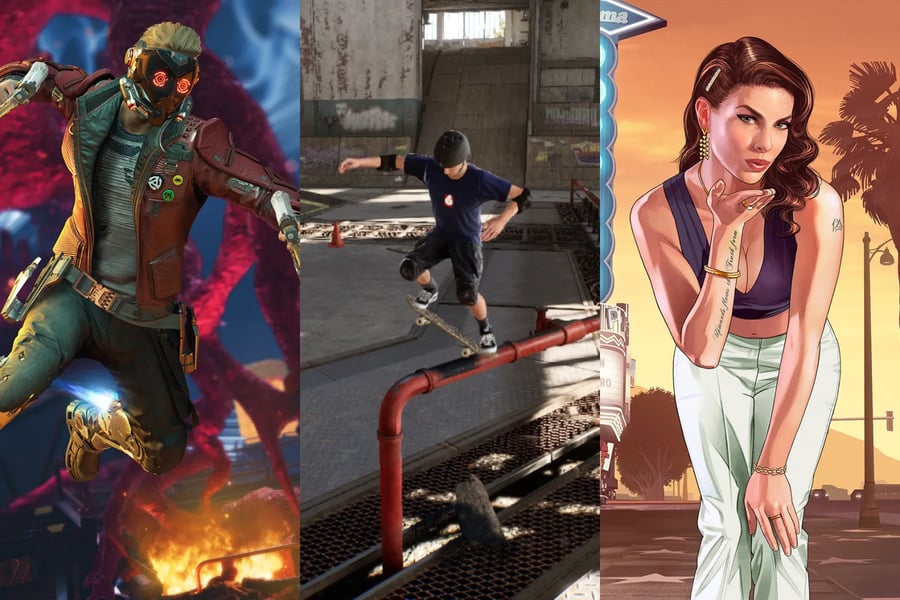The 25 Best Video Game Soundtracks of All Time
From in-game radio to climactic boss battles themes, these are the tracks that defined popular music in gaming

SQUARE ENIX; ACTIVISION; ROCKSTAR GAMES
Since the earliest days of gaming, music has helped create a sense of immersion and worldbuilding. From composer Koji Kondo’s Super Mario Bros. theme, to the infectious earworm of Tetris’ “Korobeiniki,” the sound of video games has often been as memorable, if not more so, than the actual look.
And while video game scores have come a long way in the last half century to become more cinematic, there’s another form of video game music that has had a profound impact on the user experience and has been going strong since the Nineties: the licensed soundtrack.
The idea dates to 1982, when Journey delivered a chiptune rendition of their track, “Don’t Stop Believin’,” for their Atari 2600 game Journey Escape. But just a decade later, with the advent of home consoles like the Sega CD and Sony PlayStation, the ability to incorporate popular music in video games would leap beyond tonally spotty MIDI recreations into the realm of high-quality audio tracks.
Some games are synonymous with a single song, like 2001’s Twisted Metal: Black, whose use of The Rolling Stones’ “Paint It Black” in the opening credits instantly reinvented the tone for the entire series. Others follow up incredible scores with a tastefully placed needle drop that drives home an essential narrative moment, like the unexpected somberness of D’Angelo’s “Unshaken” during the climax of Read Dead Redemption 2.
But a truly great licensed soundtrack manages to weave itself throughout the entire experience in ways that make it essential to the gameplay. Spending hours immersed in a game’s world often deeply connects players to specific tracks and can introduce new generations of gamers to songs they may have never otherwise known.
To rank the best licensed soundtracks of all time, there must be some caveats. Compiling the list, we generally looked at games that had more than a single famous track, and we also omitted annual sports franchises that include slews of popular tracks from their respective years. (There’s simply too many FIFA or NBA 2K installments to rank.) Nor did we include rhythm-based or dancing games whose entire premise is playing along to popular songs (put down the pitchforks, Guitar Hero stans).
With that, here are Rolling Stone’s picks for the 25 best licensed gaming soundtracks.
Love Music?
Get your daily dose of everything happening in Australian/New Zealand music and globally.
From Rolling Stone US



























































